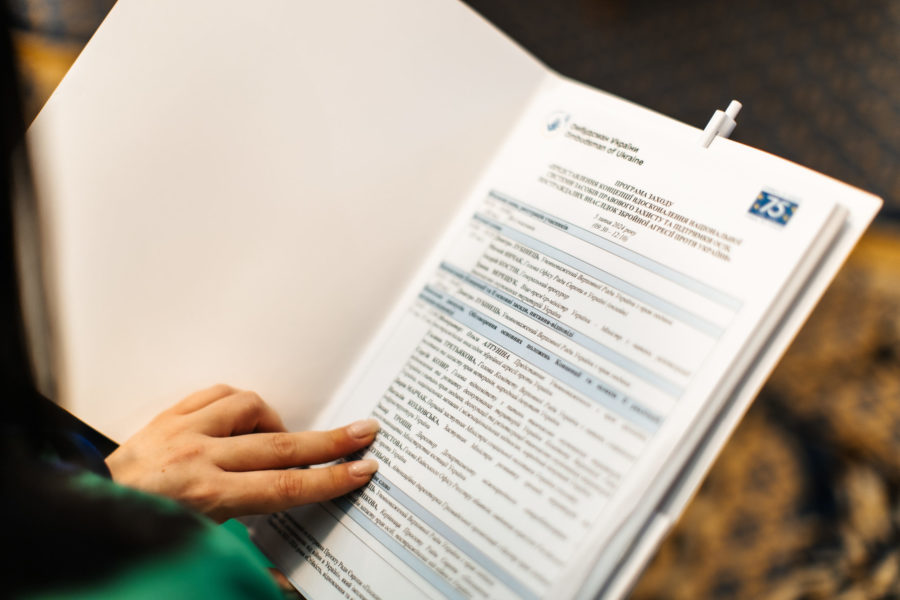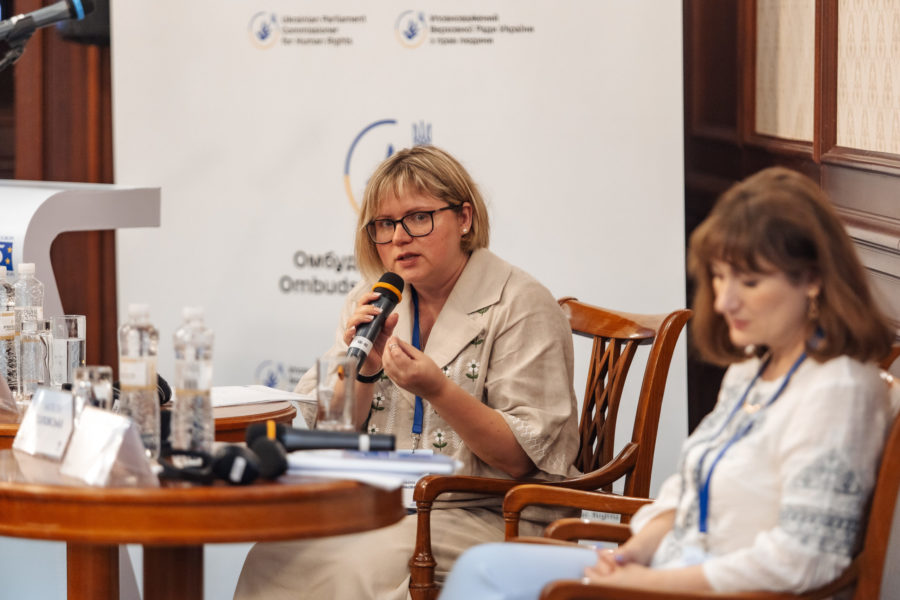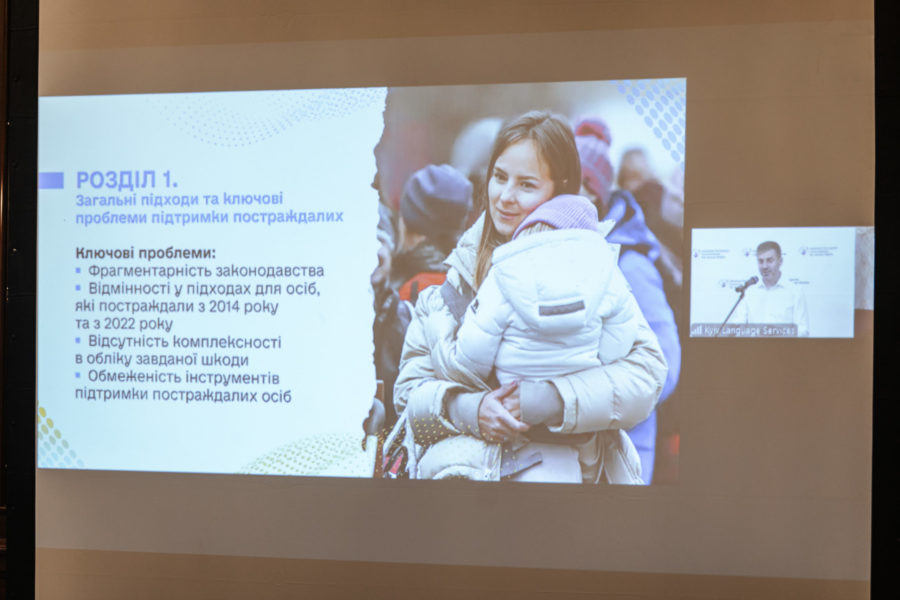ZMINA took part in the presentation of the concept of support for victims affected by Russian aggression
The Ukrainian Parliament Commissioner for Human Rights, Dmytro Lubinets, presented the Concept for Improving the National System of Legal Remedies and Support for Victims of Armed Aggression against Ukraine, which contains specific steps and recommendations to resolve this issue.

The document is based on the results of an offsite meeting of the working group on preparing proposals for compensation for victims affected by Russian aggression. The working group was established by the Ombudsman’s Office in September 2023.
The presentation was also joined by representatives of Human Rights Centre ZMINA. In particular, the advocacy manager of Human Rights Centre ZMINA, Alena Lunova, who was responsible for compiling the proposals and drafting the relevant text of the concept.
During her speech, the human rights defender spoke about the main problems faced by victims and what the state can do right now until the adoption of an appropriate legislative framework for a comprehensive system of legal protection and support.
 Alena Lunova
Alena Lunova“Firstly, it is important to audit the procedures for assigning certain statuses and establishing the facts that indicate that a person belongs to the category of victims. Because in our practice, it often happens that a person comes to us because they have been subjected to enforced disappearance, illegally detained by the occupation authorities in places of detention in the occupied territory of Ukraine, or tortured. And after the release, they submit an application to the commission under the Ministry of Reintegration, which is authorised to establish the fact of illegal deprivation of freedom as a result of armed aggression, and this commission does not confirm this fact. And this person is deprived not only of the right to apply for financial assistance, but also of the entire range of guarantees available to persons deprived of their freedom as a result of armed aggression against Ukraine”, Alena Lunova said in her speech.
She also adds that if the International Register relies only on state data, such a person will not be able to claim future compensation.
“And if the register is based not only on state data, but also on the data of NGOs, it is important for NGOs to develop appropriate recommendations for recording and transmitting information about victims, so that we can do everything possible to further compensate victims for the damage they have suffered”, the expert adds.
In addition, according to the human rights defender, it is important to talk about correct communication with victims and proper management of their expectations.

“We shouldn’t expect people to figure it out on their own. No one has communicated with the victims about why the register initially accepted applications for damage to housing in the government-controlled area. After all, those whose health has been affected and who have lost loved ones feel most affected. And explanations are important because the victims are in a vulnerable position. Therefore, balanced and honest communication with the victims is extremely important”, Alena Lunova said.
The concept notes that it is important that this mechanism covers all types of damage caused by the aggression since 2014 to prevent discrimination in approaches to protecting and supporting victims and to avoid “victim competition”.
The government’s concept and recommendations you can find here.
If you have found a spelling error, please, notify us by selecting that text and pressing Ctrl+Enter.















